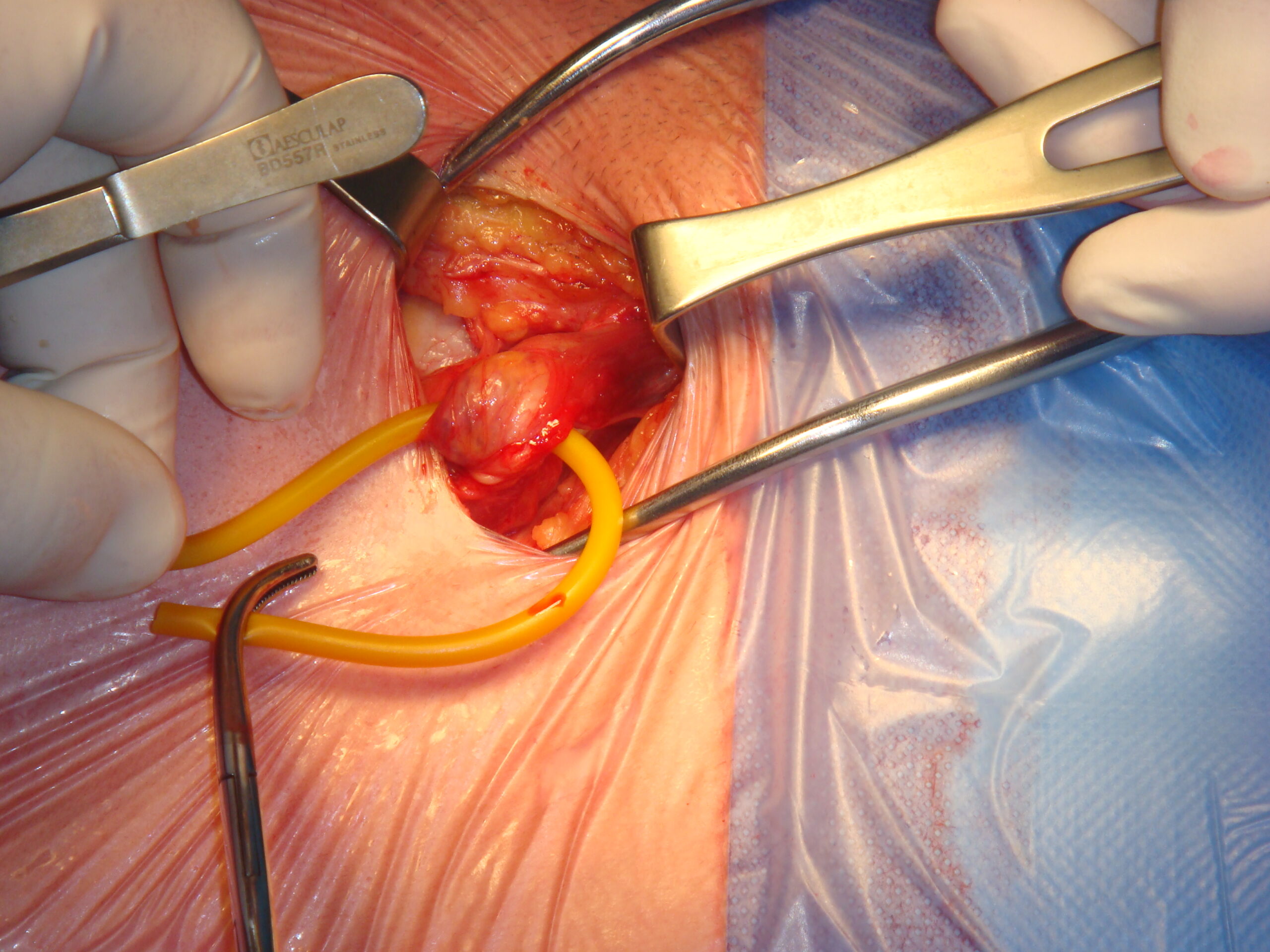What is Hernia?
Your abdomen is covered in layers of muscle and strong tissue that help you move and protect internal organs. A hernia is an opening or weakness in this muscular wall that allows tissue and internal organs, to protrude through. The bulge you may see in most hernias is not the hernia itself, but the tissue and organs (such as intestines) slipping into a place where they don’t belong.
Hernias can occur anywhere on the body, but abdominal hernias are the most common and are named based on their type and location on the abdomen. The most common abdominal hernias are:
- Groin (inguinal or femoral)
- Belly button (umbilical)
- Site of a previous operation (incisional)
- Anywhere on the front side of the body (ventral)

What Causes Hernia?
Hernias can be caused by a variety of factors but ultimately, all hernias are caused by a combination of pressure and an opening or weakness of muscle or fascia; the pressure pushes an organ or tissue through the opening or weak spot. Sometimes muscle weakness is present at birth; more often, it occurs later in life. Some factors can be pregnancy, obesity, persistent coughing or sneezing, or previous surgeries.
Hernia Surgery
Hernia surgery is a procedure that is used to repair a hernia. Hernia surgery is usually done to treat abdominal hernias, but it can also be done to treat other types of hernias, such as Hiatal hernias and inguinal hernias. No matter what type of hernia you are experiencing, it’s important to treat it quickly.
Hernias can be repaired laparoscopically, using minimally invasive techniques with tiny incisions, or through an open incision. The size and type of your hernia together with your medical condition will be the determining factors for your surgeon’s recommended approach for surgical repair. At Gwinnett Surgical Specialists, our surgeons Dr. Kakarla and Dr. Solis are experts in the latest techniques and will guide you through the best hernia surgery option for you, while keeping in mind the following goals:
- provide the strongest repair
- least chance of recurrence (return of the hernia)
- the least possible discomfort
- quickest recovery
Surgery and Recovery
Hernia surgery is typically performed using general anesthesia, which means you’ll be asleep during the procedure. The surgeon will make an incision in the area of the hernia and then push the protruding organ or tissue back into place. The surgeon will then close the incision with stitches or staples and often reinforces the repair with a piece of mesh which reduces the risk of the hernia coming back. Hernia surgery is a safe and effective way to treat hernias. Hernia surgery can often be done in our outpatient surgery center, which not only means you can usually go home the same day as your procedure, but your surgery can be scheduled immediately without long hospital waits.
Recovery from Hernia surgery is typically fairly quick, and most people are able to return to their normal activities within a week or two. However, it’s important to follow your doctor’s instructions for recovery and avoid strenuous activity until your doctor gives you the green light.
Get Your Surgery at Gwinnett Surgical Specialists
Have one of our surgeons at Gwinnett Surgical Specialists, Lawrenceville, Georgia, talk to you about which type of minimally invasive surgery may be best for your surgical needs. Please call us at 770-962-9977 and schedule an appointment.
